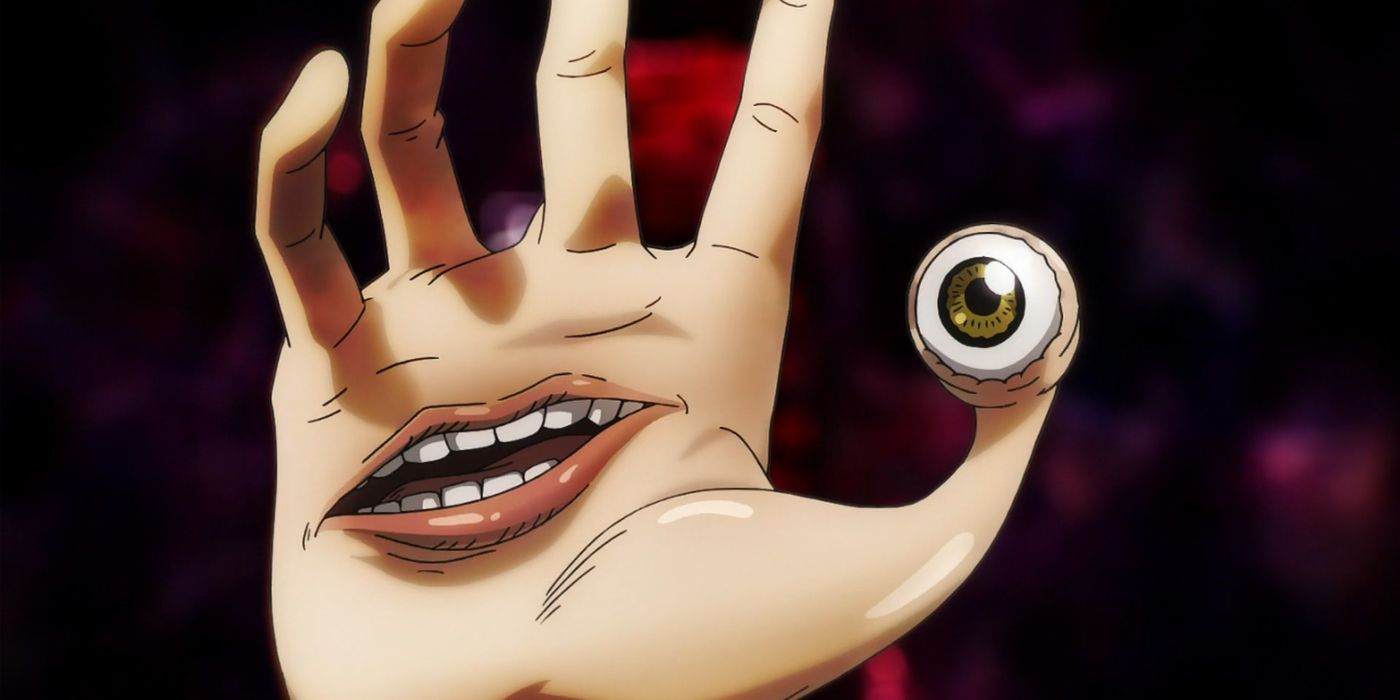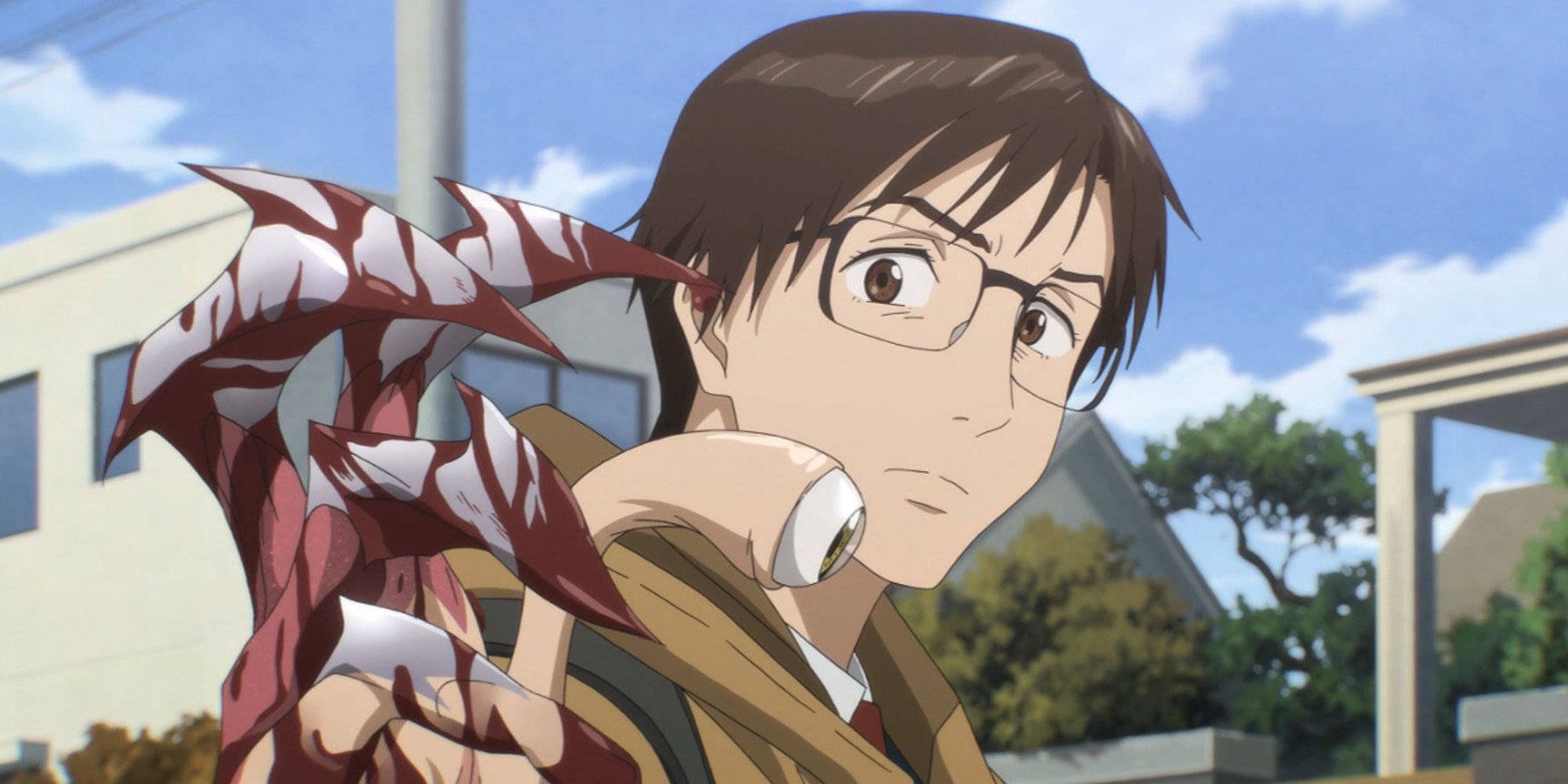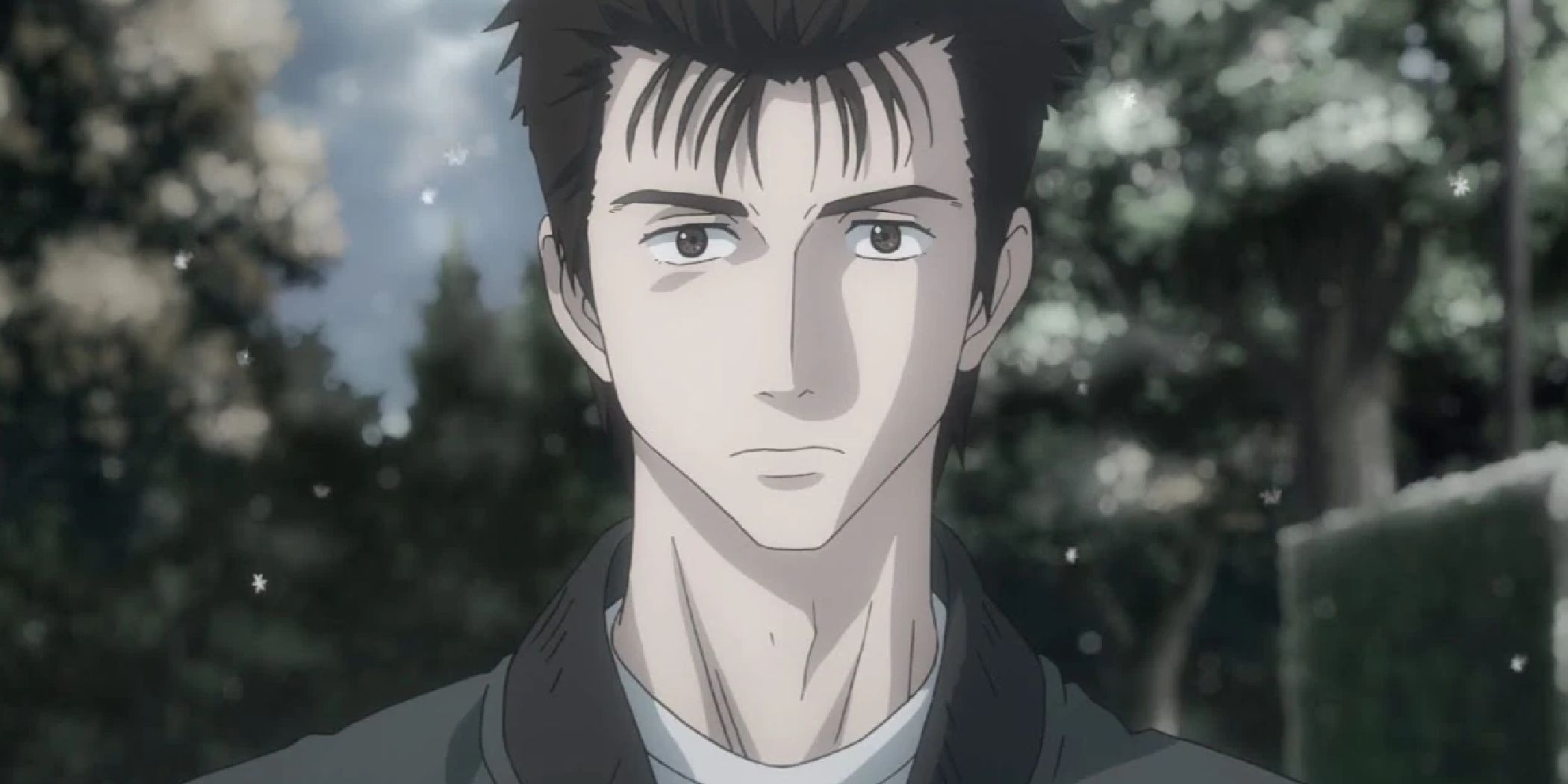
When it comes to horror anime and manga, I'm not normally one to check it out. Of course, I read some classics Junji Ito it works, but generally speaking, concepts like body horror tend to turn me off from a series. However, I was caught off guard by a horror series, which brought with it some heavy philosophical ideas that gave it more depth than the average horror anime.
In October 2015, I was watching Adult Swim's Toonami block when a new horror series Parasite -the maxim-started to debut. I always try to give these types of series at least one episode to win me over, but I was more than prepared to sit out the rest of the series. The story has a sci-fi slant, with the invasion of strange, body-snatching space aliens, so perhaps I was a little more willing to give it a try than I would be in another horror series. While I would love to say that the first episode surprised me, the series is much slower and I'm glad I stuck with it.
Parasyte brings a thoughtfulness to horror that's rare
Parasyte's philosophical themes significantly enhance the story
Parasite is based on a manga by Hitoshi Iwaaki that was originally published from 1989 to 1994, but the 2014 anime adaptation updated the setting to a modern one, which it managed to do without losing anything. The story follows Shinichi Izumi, a 17-year-old high school student who falls victim to one of the aforementioned body-snatching alien parasites. However, something goes wrong with the assimilation process, and Shinichi wakes up to discover that his right hand is now an alien monster with no way to separate it from himself.
Eventually naming this alien Migi (Japanese for "right"), Shinichi discovers that these parasites often meet and kill each other, and that if he is to survive, he will have to make peace with this failed body snatcher and work together.. Migi has a very rigid and strange way of thinking that conflicts with Shinichi's personality, but the two soon come to depend on each other. While there is the inherent body horror of having one of your limbs suddenly turn on you, the series actually thrives on a more existential type of horror that only becomes apparent as the story unfolds.
Forced into these life or death situations almost constantly, Shinichi becomes more pragmatic and cold, while Migi slowly begins to learn about concepts like love and the value of life. As a character who is initially hesitant to even throw a punch, Shinichi eventually becomes okay with exceptional violence against the parasites, and these changes in his character make the viewer question whether Shinichi is truly retaining his humanity, or whether the alien in your hand has truly influenced your thoughts and actions. However, things go both ways, as Migi becomes more human in his thoughts and concerns.
Parasyte's philosophical themes question what it means to be human
The series' complex themes challenge the viewer
Parasite is presented in such a way that the viewer follows Shinichi's fall from humanity, and at almost every stage his actions make sense, showing how human morality is inherently based on a human perspective and cannot be applied to beings who are not more fully human. It also puts humanity itself into question: These parasites can feed on humans, making them monsters to us, but does that really mean they are truly monstrous? How does this differ from the way humans attack other animals to survive?
Shinichi initially starts out with heroic intentions; Seeing how the parasites feed on humans, he can use Migi's abilities to combat them and put an end to their predatory behavior. However, these intentions gradually wane as they uncover larger conspiracies on the part of the parasites, and while Shinichi's actions are essential to saving the world, what parts of himself did he have to sacrifice to do so?
Migi also has a fascinating character, eager to learn and read about humanity. Migi and Shinichi's discussions about philosophy and what it means to be human (often in the form of justifications for why Shinichi doesn't do certain things) are interestingwith Migi sometimes playing something of a devil's advocate. Migi's curiosity alone proves that parasites aren't just brainless monsters, and Shinichi and Migi become a model for how humans and parasites don't need to kill each other.
Parasyte is a cerebral series more than a horror one
While horror plays a big role, Parasyte is more about its big ideas
For someone who was used to the horror of often being rude for the sake of being rude, I was fascinated by the philosophical complexity that Parasite managed to work on his story. If one can get past the body horror element (which is admittedly a big deal), then the depth of the series more than makes up for any horrific experiences the series inflicts on the reader. These horror scenes don't just exist to scare the viewer; they are also a key element of how philosophical ideas work.
Horror can often be resorted to for cheap tricks like jump scares, but Parasite proves that good horror, in the service of the story, can enhance even complex ideas, and that horror as a genre doesn't have to be stupid or disgusting just to attract the public. That way, Parasite It really opened my eyes to the possibilities of the horror genre and made me a little more willing to check out horror series that I might have passed on without giving them a chance.
Parasite is a slow, deliberate examination of what it means to be human, and it accomplishes that task with an incredible degree of success. Even for those who, like me, don't usually watch horror, Parasite It's absolutely worth watching.
Parasite can be transmitted on Crunchy Roll and Hulu.

